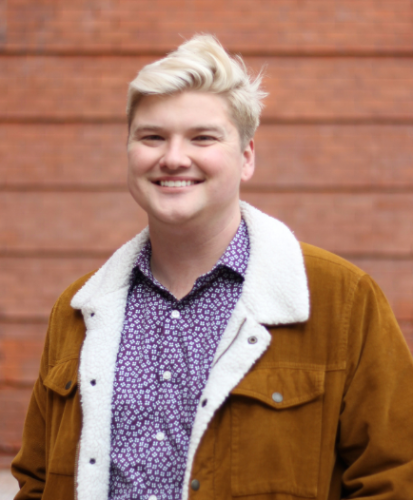Connor

Connor McCombs serves as a Health Communications Officer for the City of Somerville, bringing a unique perspective to the Health and Human Services Department. Recently we had the chance to discuss his path to public health communications and his approach to engaging the community through city resources and programs. Connor also offered insights for those looking to make a difference in community health.
Tell us about your role in local public health and what you do.
Connor: I am a Health Communications Officer for the City of Somerville, in the Health and Human Services Department, which expands a bit beyond traditional public health. My responsibilities include staffing, prioritizing, and evaluating health strategies, particularly for programs that involve city channels. While I’m less involved in the minutiae of some programs, my focus is on determining the best way to reach our target audience. I also manage our website, ensuring that information is up-to-date (e.g., information on vaccines, heating, and cooling resources).
It’s a large and fluid role that involves creating newsletters and generating reports on quarterly data. As the first person in this role, I’ve had to navigate a lot of new territory.
Describe your early career with DPH and what you gained.
Connor: Technically, this is my first role within DPH, and it’s also my full-time job since finishing my Master of Public Health. I have an amazing team. Before this, I worked in academic public health, which was very interesting. I collaborated with smaller public health teams, including some work with Barnstable. This experience was helpful in working with the Academic Public Health sector.
Before entering public health, I spent almost two years in mortgage lending with an English degree and no formal public health background. I believe that skills from various fields can translate into public health; for example, the ability to translate policies is relevant in both mortgage and public health contexts.
Having the right attitude—showing up and wanting to help, especially in local health, which directly affects your community—is everything.
What do you like most about working in local public health?
Connor: Having transitioned from the mortgage industry, I find it rewarding to work in a field focused on helping people, especially those who have been underserved throughout history. Many of our initiatives aim to reach residents who may not speak English as their first language—groups that have historically been neglected.
It’s challenging work, but it’s incredibly fulfilling when we successfully connect with these communities. Communication is typically aimed at those who are already engaged—those who speak English and attend school.
We also have a great coalition program that actively works with residents on the ground.
What challenges have you encountered while working in local public health, and what strategies or approaches did you use to overcome them?
Connor: One challenge has been engaging with communities that have been left out of public health conversations. We’re focused on getting information to our community workers who engage directly with people.
The goal is to empower them with health resources, but that requires health literacy. Until we reach a point where everyone has internet access and resources are available in languages that work for them, we have to be strategic.
We are building a network involving our social services division, churches, and community organizations to ensure resources like SNAP and MassHealth can be accessed through our community outreach workers, who do incredible work.
How has your perspective on public health evolved since you started your career?
Connor: I love my job, even though it can be really hard, and I’ve been putting in long hours. Communication has always been a passion of mine. During my MPH, I’ve refined my skills and engaged in public health research and initiatives. I focus on making health information accessible, writing it in a language that is easily understood—at an 8th-grade level—so that it can reach people outside of health circles.
Language is key to ensuring access to information. I owe a lot to the MPH program; the team was fantastic, and I’m still friends with them. If the method of communication isn't accessible, the information doesn't matter, and I will always be dedicated to health communications.
What advice do you have for someone looking to begin a local public health career?
Connor: Be Proactive and Explore Opportunities: Don't hesitate to apply for positions, and prioritize paid internships when possible. Consider volunteering for local organizations to gain valuable experience, as skills in public health are often transferable.
Diversify Your Applications: Look beyond traditional health departments; explore opportunities in local and state government positions, such as immigrant affairs or homelessness departments.
Maintain Balance and Well-being: Be mindful of burnout by prioritizing work-life balance and emphasizing mental health. While the pay in public health may vary, the benefits can be substantial.
Get Creative: Approach your career path with creativity and openness, taking advantage of the various resources and connections available in your community.
Outside of work, what hobbies or interests do you have that contribute to your well-being and perspective in your professional life?
Connor: Prioritizing personal life is important, and it looks different for everyone. I enjoy reading (both fiction and starting non-fiction), socializing, and having weekly dinners and game nights with my family. I’m a big comic book reader and also make time for exercise, often running on community paths. This has been a nice way to connect with my community, especially using local transit and walking everywhere.
Tell Us Why You Work in Local Public Health
Want to share your local public health story? Email us at localregionalpublichealth@mass.gov, and we’ll get in touch! We would love to share the diverse voices and experiences of those who work in communities to support public health.